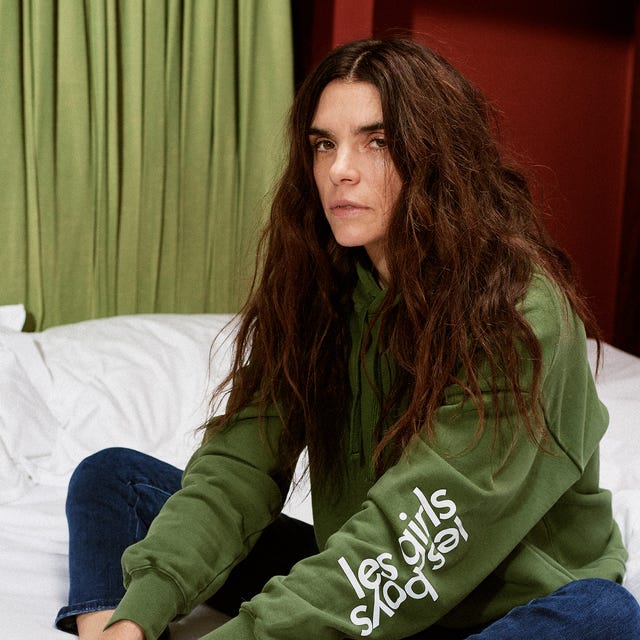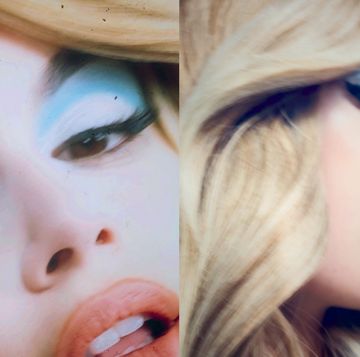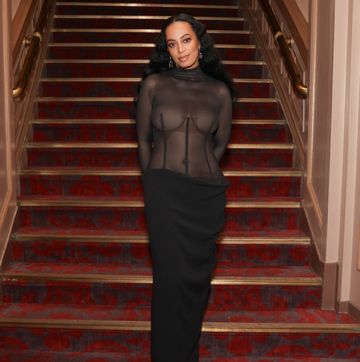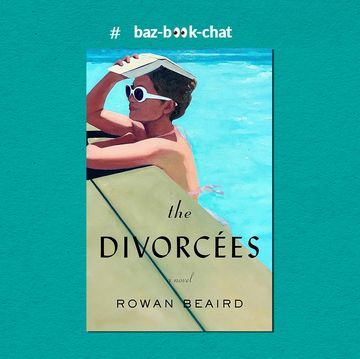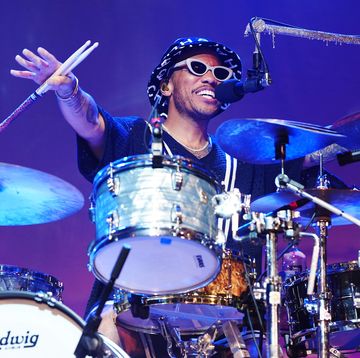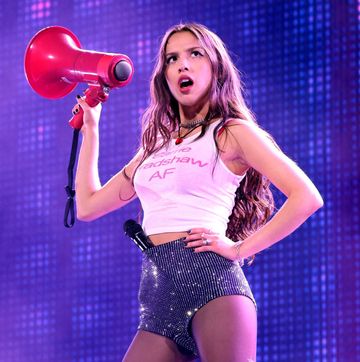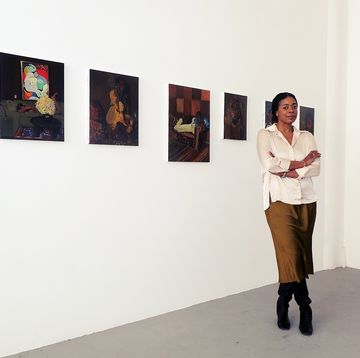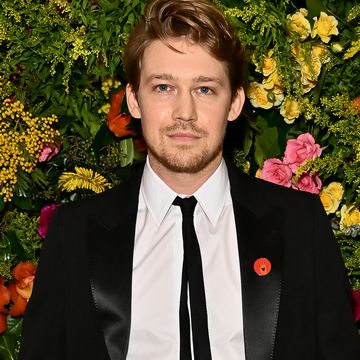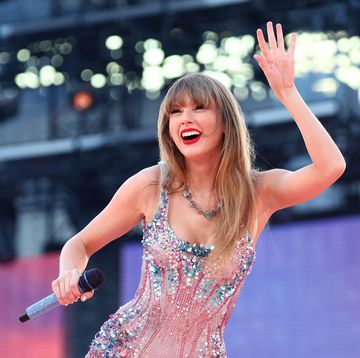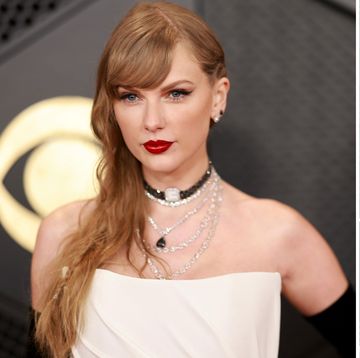2004 was the year that everything changed for Leona Naess. Then 30, the British singer-songwriter had made a name for herself within New York City’s explosive indie rock scene after getting signed to Outpost Records at the age of 22, fresh out of New York University. She’d performed at Lilith Fair in 1999; released three albums, starting with 2000’s Comatised; and had even shared the stage with her then stepmother, the legendary Diana Ross. But already jaded by the music industry’s prioritization of numbers over art, and reeling from her father’s untimely death in a mountain climbing accident, Naess split with her manager in 2004 and was ready to leave music behind for good. That same year, she also met her now husband, started a life with him, and, eventually, had their two kids.
On June 3, nearly two decades after her quiet exit, Naess is stepping back into the spotlight with a nine-track LP largely written during the pandemic. Titled Brood X after a family of periodic cicadas that, like Naess, reemerged in 2021 after 17 years underground, the record is a stunningly personal meditation on loss and vitality, loneliness and growth, selfhood within the framework of motherhood, and, at its very baseline, love.
Today, Naess is releasing the project’s opening song, “Call You by Your Name,” which was inspired by Italian composer Ennio Morricone and reflects on losing power over someone you love. To commemorate the single, BAZAAR.com speaks with Naess over the phone about pregnancy fears, navigating the loss of her mother through music, and why now is the right time for her sonic rebirth.
Why, after 17 years, did you decide to get back into the studio?
Honestly, I was lucky enough when I was young that as soon as I got out of school, I got signed to a big label. I had a huge amount of support, and I worked and worked and worked. And then, I saw the side of the business that was really tough, which is you're the darling until the numbers come back and then it's like no one cares. It's heartbreaking if you love music, it's heartbreaking to have that connected to your worth.
By the end, I was touring around England in the dead of winter, and I was playing these really dodgy bars, and I was like, "What am I doing? I can't do this anymore. I'm sick of sitting in urine-stained dressing rooms and opening for people." I put my guitar away and fell in love, got married, and had kids.
Right before the pandemic, I was in L.A., and I met this producer named Max Cooke, and we did a song, and it was like, "Oh, my God, this is so fun." It really just started there, but then COVID happened. Luckily, we had gone away to Switzerland with the kids and got stuck in Europe, and it happened to be that Max was in Germany. We could take trains to each other, and it was peaceful and quiet, and I had the space to create. And so, that's how it happened. It wasn't a decision, something just opened up. I guess I fell back in love with music.
What was COVID like for you? You were in another country with your family while rediscovering yourself as a musician, but there was intense heartbreak and tragedy all around.
My mother died during COVID, but it was from Alzheimer's. She was living in London, and I knew that her time was pretty close to the end. So I said, "I'm going to take my kids out of school for January, February, and March, and we're going to go and live in the mountains."
My father was a mountain climber, and there's a place that he'd take me to in Switzerland that's the most beautiful place in the world, so I wanted them to experience the places that my dad used to take me to. We all got COVID there, and by the time that we got better, New York was a mess. We were the luckiest because my kids were back in school pretty quickly and we were in the countryside.
Were any of the songs on the LP inspired by your mother, and if so, did she ever get to hear them?
I wrote "If a Song" when I was in London right before COVID when I was visiting my mom. It was very hard to visit her because she couldn't talk or move, and she wasn't really there anymore. I had this vision of a song going into her ear and starting to wake up all her cells and bring her back. I remember I got to play it for her, just the demo, but I definitely saw that she heard it. There was just a change in her aura or something. I think that was the last time I saw her.
Were most of the songs written during 2021?
Most of them were written in '21, but "The Beginning" is a weird one, because I wrote the verse for it 10 years ago when I was pregnant, and I wrote the chorus last year. The chorus is almost the answer to what I was worried about when I was pregnant: Yes, your life does go on after you give birth, and actually it is better, and you can still have new experiences. You can decide to go, "Ugh, everything is done. All the fun stuff is over." Or you can decide to keep making art and keep meeting new people.
Along with motherhood, what else do you explore on the album?
With this record, I mostly tried to make each song about its own thing. So there's a song about my husband, there's a song about my mother, there's a song about an old love, there's a song about each of my kids. They all have their own universe. It is about being a mother, but it's also just about being alive.
I really wanted to make a record that people that were 20 would relate to as well. I'm also at that stage where my kids are starting to move away from me in that they don't want me to say anything in front of their friends because I'm embarrassing. And they're concerned with my outfits. It's weird because in the beginning, I felt like I was rejecting motherhood, and now they're at the stage where they're like, "Yeah, we don't really need you right now." So it's about that as well.
How was the experience of putting this LP together different from your experience when you first entered the industry?
It's funny because when I started, I was always signed to some big label, and too many people had opinions. And I was young and also insecure, and I thought everybody knew more than I did. I was a woman in the business, too—the amount of times that I had inappropriate things said to me … it didn't even faze me. It was just part of it all if you were a woman.
With this album, I did it completely on my own in the sense that I pulled in a lot of favors. I love the fact that everybody involved is somebody I love. A lot of my collaborators are women, and it's so inspiring because I'm seeing all these friends of mine who are climbing into their late 40s and have kids but they've never looked more beautiful to me and they've never been more productive. My sister Tracee [Ellis Ross] hit her stride later in life, and I just love that. I think it's really important that we are told this—as a kid, my mother used to tell me that past 40, you're invisible.
Your new single is called "Call You by Your Name." What's it about, and how did you conceptualize the video?
My friend Laura Bailey is not a filmmaker, but she's an incredible photographer. We had previously done a collaboration where she used a song of mine for a Chanel campaign featuring a dancer from the Royal Ballet named Francesca Hayward, and when I saw it, I was like, "Oh, my God, I want her in every video. She's so beautiful." So I sent the song to Laura, who directed the video, and we made it happen.
The song is really just about losing power over somebody you love and trying to come to peace with it. I think you assume that you will always have this power over someone you love, and when you don't and when they start making decisions that you don't understand, it's hard. But you have to surrender and try to be as loving and open and understanding as possible.
Do you hope to make more music?
Oh, yeah. The purpose of this record—I was not into the idea of putting myself out there again. It's hard. The criticism, the reviews—I also was like, "Oh, God, I don't look like a 20-year-old anymore." So I was like, "I'm going to be like Sia, but without putting out my own records. I'm going to write fucking huge pop songs for people, and I'm going to make a lot of money, and I'm going to stay home with my kids."
The only person that was still with me was my business manager. He's incredible. He works with Billie Eilish and all these big producers and writers. I went to him and said, "Can you please get me in touch with them?" He was like, "Leona, I can't send them a record that's 15 years old. You have to have recent music that you can show, and then you can get in the room to write."
Now, I'm like, "It was so fun making music." So, yes, I have so many songs, and I'm going to try and write another record. Honestly, this record has already exceeded what I had hoped it would do, which is make me happy. I also felt like my kids were really proud of me. There was a time where I was like, "My kids just think I don't do anything; they just think I'm their mom and I don't have a life or a past or a future." Now, they're so happy that their mom does something cool. That's better than anything—your kids not thinking you're a super dork.

Ariana Marsh is Harper Bazaar’s senior features editor. Working across print and digital, she covers the arts, culture, fashion, literature, and entertainment—and a bit of everything in between.
